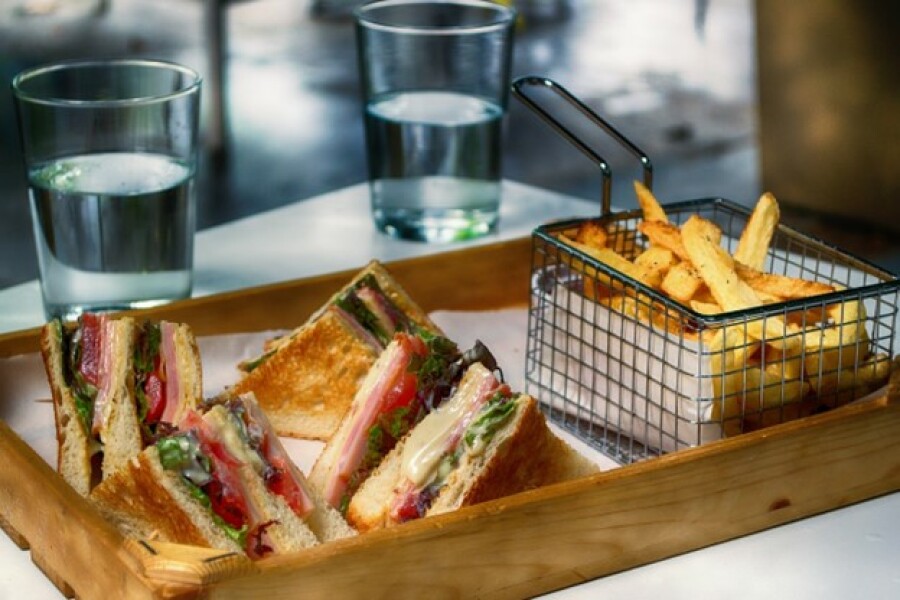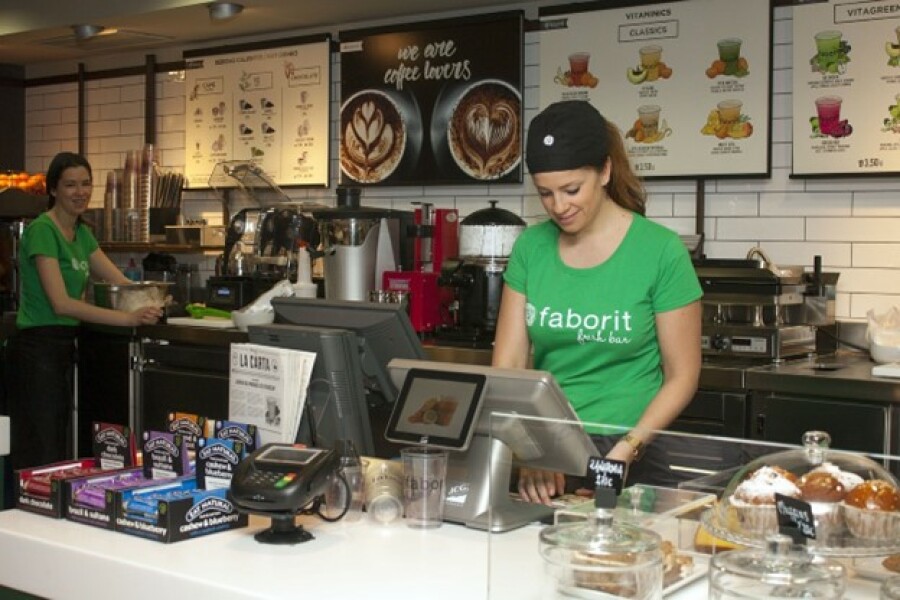Stuck in a dead-end job? Not satisfied with your current career? Ever dreamt of owning your own business? If so, you should consider starting a fast food franchise.
There are many benefits to be had in starting such a franchise. That said, you can't go in blind. To give yourself the highest chance at success, you need to have a thorough understanding of the process.
That's where this article comes in. Below, we're going to get into the ins and outs of starting a fast food franchise, providing you with information on funding, finances, choosing a location, and more. Ready? Let's get started!

What is a Franchise?
To understand what a fast food franchise is, you must first understand what a franchise is. A franchise is essentially a branch of a larger brand. The brand has its own marketing materials and business processes and allows entrepreneurs to take on such. A fast food franchise is simply a franchise that sells fast food.
The vast majority of McDonald's restaurants, for example, are franchises. They all appear and run in the same general manner. However, they're owned and managed by different individuals.
The owner of the franchise gets to keep a good portion of the revenue that comes into the franchise. However, some of the revenue must be given to the overarching brand, as its marketing materials and business processes are integral to the franchise's success. The specifics of revenue distribution come down to the language in the franchise contract. This varies from brand to brand.
The Pros of Starting a Franchise
There are many upsides to starting a franchise, especially in the fast food industry. Some of the biggest upsides of doing so include the following:
An Established Reputation
Perhaps the biggest pro of starting a franchise is that you get to begin your restaurant with an established reputation. The name of your restaurant will already have some clout and will therefore attract a good number of customers immediately.
This isn't true when you start a restaurant from scratch. When starting your own restaurant, you must build its reputation from the ground up. This can take some time, and, if you can't build a customer base quickly enough, your restaurant could go under.
Intensive Training
Most brands provide their franchisees with intensive training prior to the new franchise opening. This training will include not only information about the brand's business operations but information on marketing, accounting, and more.
Understanding these aspects is key to running a successful company. If you were to start your own business from scratch, you wouldn't receive this training. Starting a franchise sets you on the right track.
Greater Access to Financing
One of the biggest challenges of starting a fast food restaurant is finding the funding necessary to do so. Most entrepreneurs need to take out loans to make it a reality. Unfortunately, qualifying for a loan can be difficult.
That said, when you're starting a franchise, you have a much better chance at securing a loan than if you were starting a company from scratch. Not only do banks trust big brand names more but, in addition, many brands offer their own form of internal financing.

The Cons of Starting a Franchise
While there are many pros to starting a franchise, there are downsides as well. These include the following:
A Lack of Flexibility
Simply put, franchises don't provide much flexibility. As a franchise owner, you're expected to abide by certain rules and processes. You're also expected to use specific marketing materials. If you want freedom in these areas, you're going to have to start your business from scratch.
Substantial Startup Costs
Starting a franchise is more expensive than starting your own business, usually substantially so. This is because, to start a franchise, you have to pay a startup fee to the overarching brand. This can range from a few hundred thousand dollars to over a million dollars.
When you start your own business, you owe no such costs. Therefore, you can launch your company with a small fraction of the money you would need to launch a franchise.
Choosing the Right Franchise: Considerations to Make
We've discussed the pros and cons of owning a franchise in the fast food industry. Now, let's talk about how to choose the right franchise. Some of the considerations to make when assessing your options include the following:
The Strength of the Support System
One of the most important considerations is the strength of the support system. Does the franchisor have a strong support system for franchisees, or does it, more or less, leave the franchisee to their own devices?
Generally speaking, it's wise to choose a franchisor that thoroughly trains and supports its franchisees. This is particularly true for franchisees who are new to owning a business.
Alignment on Expectations
Every franchisor has expectations of its franchisees. Some franchisors' expectations are greater than others. As a potential franchisee, you want to make sure that your prospective franchisor's expectations align with what you bring to the table. Otherwise, you could find yourself in a difficult and stressful situation.
Make sure to speak with your prospective franchisor at length. Ensure that you're on the same page before signing any contracts.
Need in Your Area
The last thing to consider is the franchise's need in your area. Does your area need another chicken restaurant, for example? Maybe it's lacking in Asian restaurants and would be welcome to one opening.
You need to do market analysis to determine your area's current needs. If you start a franchise in a saturated market, you could have trouble making it a success. On the other hand, if the franchise is too niche, it might not go over. Find the balance before making your choice.
Getting the Location Right
Key to your franchise's success is getting its location right. If your franchise exists on a busy commercial street, it's sure to bring in more revenue than it would if it was located off the beaten path. On the other hand, buying in a busy area is going to drive up your startup costs. Because of this, you have to find a good balance of visibility and cost.
First and foremost, set a budget for how much you're willing to spend on rent/a mortgage. This will enable you to focus on specific properties or areas.
Once you've done this, consider traffic in the area. Generally speaking, the busier the area, the more business it will do. As such, you want to choose a high-traffic area over a low-traffic area.
You should also consider the property's visibility from the road. The more visible the property is, the more likely it is to be visited by passersby.
It's also a good idea to analyze demographics in your area. Figure out the subset of people most likely to frequent your franchise. Once you've done this, do geographical analysis to determine where they live/work/etc. You'll want to establish your franchise in an area where your ideal customer commonly goes.
How Much Does It Cost to Start a Franchise in the Fast Food Industry?
In truth, there's a great deal of variation in terms of startup costs for franchises in the fast food industry. Some franchise owners can start their franchises for as little as $100,000. Others spend millions. Your exact expenses come down to a variety of factors.
One of the biggest factors is the brand you're franchising with. A renowned brand like McDonald's is going to cost you a lot more than a less-renowned brand with less history.
Another factor is the location of your franchise. Rent in a major city center is going to be substantially higher than rent in a rural area.
Inventory costs, legal fees, insurance, licenses, and permits will play a part as well. So will training costs.
There are also recurring fees to consider. These include the royalties that you pay to the brand (typically a percentage of your revenue) as well as marketing fees.
In short, the only way to know how much your franchise will cost is to sit down and do the calculations. Gather research, add all of the figures up, and find a ballpark number.

Franchise Funding Tips
Funding a franchise can be a challenge. Generally speaking, a franchisee needs to be creative in obtaining funding. Some funding tips to use include:
Find a Partner
One option is to find a business partner (or several). By pooling all of your money together, you can more easily obtain the funding needed to launch your franchise. The downside to this is that you get a smaller percentage of the revenue that you bring in.
Use Internal Financing
Another option is to use internal financing. Many brands offer financing programs for those looking to start franchises with them. These programs require the franchisee to pay interest over time, but they can, at the very least, get their foot in the door.
Get a Loan
Taking out a loan isn't the ideal way to fund a franchise. However, for many it's the only option available. Fortunately, there are a number of quality loan options out there, giving anyone a legitimate shot at running a successful franchise.
Some of the best loan options are SBA loans. They're not only easy to obtain but generally carry low interest rates as well.
You could also get a business loan from a bank. Note, though, that obtaining such a loan is typically more difficult than obtaining an SBA loan.
Common Struggles in Running a Franchise
Running a franchise has the potential to be quite lucrative for you. However, it's not without its struggles. Some of the most common struggles of running a franchise include:
Retaining Employees
Fast food restaurants are notorious for having high employee turnover. As such, franchise owners are having to constantly hire new employees. This can be stressful, not to mention time-consuming.
Maintaining the Brand
Because franchises are under the umbrella of overarching brands, the owners of franchises must work to maintain those brands. They don't have much freedom in the marketing department.
Exiting the Franchise
Let's say that your franchise doesn't bring in the revenue you'd hoped for. Due to this, you opt to exit the franchise. What you might find, however, is that exiting a franchise in the fast food industry can be complex. Depending on the stipulations of the contract, you could struggle with doing so.
Getting Approved
Fast food brands aren't going to hand franchises over to just anyone. You have to be qualified in the eyes of the brand. This entails having a certain amount of money, not to mention some relevant business experience.
Even if you are successful in obtaining a franchise, the road to getting there can be a long one. This is why, if you opt to open a franchise, you need to be all in on the idea.
Franchise Training Opportunities
If you have business experience, you might well be able to successfully launch a franchise on your own. If you don't have this experience, you're strongly advised to undergo franchise training.
There are many franchise training opportunities out there. Some of the best franchise training programs include Online Courses Australia and Franchise Advisory Center. Most brands also provide pre-training as a condition of starting a franchise with them.
Starting a Fast Food Franchise Could Change Your Life
If you've ever considered starting your own business, you should give serious consideration to starting a franchise in the fast food industry. When run correctly, these franchises are generally a success. Some can be extremely lucrative.
While running a franchise won't technically make you your own boss, it will, more or less, allow you to call the shots. Plus, it's a great way to get into entrepreneurship. Find success with a franchise and, soon enough, you'll be able to successfully start a business of your own.














